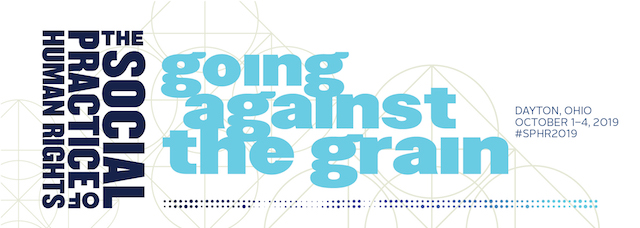Location
Local Human Rights Movements
Start Date
10-4-2019 8:30 AM
End Date
10-4-2019 10:00 AM
Keywords
abortion, Hyde Amendment, CEDAW, human rights, women’s rights, reproductive rights, reproductive justice, constitutional law, gender
Abstract
Women’s sexual and reproductive rights are foundational to gender equality. Having access to abortion care is fundamental to the full realization of a woman’s human rights. Although abortion is legal in the United States, anti-choice groups and conservative lawmakers have been successful in restricting the right to an abortion, particularly through legislation like the Hyde Amendment, which bans federal funds from covering abortion care for low-income women insured by the Medicaid program. U.S. constitutional law has upheld restrictions on abortion care, leaving a large portion of reproductive age women without the ability to exercise their constitutional right to an abortion. In contrast, international human rights mechanisms have had an impact on liberalizing national abortion laws by requiring that governments take affirmative action to ensure that women can access safe abortion care as a fundamental human right. While the international community is advancing abortion as a human right, several cities have aligned themselves with an international human rights framework by adopting the principles of the Convention on the Elimination of All Forms of Discrimination Against Women (CEDAW), an international women’s rights treaty that the U.S. has refused to ratify at the federal level. This research aimed to discover how these cities could utilize this human rights framework to advance abortion as a human right in their communities, particularly in states that follow the federal Hyde Amendment restrictions on abortion. The research was conducted through qualitative semi-structured interviews with local activists working to pass and implement CEDAW resolutions and ordinances, people working on the Cities for CEDAW (C4C) campaign, reproductive rights professionals, and a local abortion fund. This thesis that the negative human rights impact of the Hyde Amendment, although law of the land, can be challenged by activists through advocacy around passing and implementing local CEDAW ordinances and resolutions.
Author/Speaker Biographical Statement(s)
Jessica Pierson holds a M.A. in Human Rights Studies from Columbia University. Her research focuses on abortion access as a human right, primarily how this can manifest in the United States. Jessica recently worked as a Research Assistant at the Law, Rights, and Religion Project at Columbia Law School where she helped launch two local advocacy campaigns around religious healthcare refusals. Her current work centers around the upcoming 25th anniversary of the Fourth World Conference on Women and how NGOs can report on their country’s progress on implementing the Beijing Platform for Action.
Abortion as a Human Right in the United States: Exploring the Role of CEDAW Cities in Challenging the Hyde Amendment
Local Human Rights Movements
Women’s sexual and reproductive rights are foundational to gender equality. Having access to abortion care is fundamental to the full realization of a woman’s human rights. Although abortion is legal in the United States, anti-choice groups and conservative lawmakers have been successful in restricting the right to an abortion, particularly through legislation like the Hyde Amendment, which bans federal funds from covering abortion care for low-income women insured by the Medicaid program. U.S. constitutional law has upheld restrictions on abortion care, leaving a large portion of reproductive age women without the ability to exercise their constitutional right to an abortion. In contrast, international human rights mechanisms have had an impact on liberalizing national abortion laws by requiring that governments take affirmative action to ensure that women can access safe abortion care as a fundamental human right. While the international community is advancing abortion as a human right, several cities have aligned themselves with an international human rights framework by adopting the principles of the Convention on the Elimination of All Forms of Discrimination Against Women (CEDAW), an international women’s rights treaty that the U.S. has refused to ratify at the federal level. This research aimed to discover how these cities could utilize this human rights framework to advance abortion as a human right in their communities, particularly in states that follow the federal Hyde Amendment restrictions on abortion. The research was conducted through qualitative semi-structured interviews with local activists working to pass and implement CEDAW resolutions and ordinances, people working on the Cities for CEDAW (C4C) campaign, reproductive rights professionals, and a local abortion fund. This thesis that the negative human rights impact of the Hyde Amendment, although law of the land, can be challenged by activists through advocacy around passing and implementing local CEDAW ordinances and resolutions.



